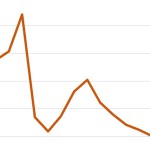You Gotta Be Tight to Be Loose in the Right Measure
Michele Gelfand has been making the podcast rounds in recent months to promote her book, Rule Makers, Rule Breakers: How Tight and Loose Cultures Wire Our World, and all of the interviews I’ve heard have been interesting in their own way. One particularly intriguing line of thought bubbled up from her conversation with Jonah Goldberg, on his Remnant podcast, however.
Gelfand advises corporations and other organizations about how to interact with associates in other cultures, and the point of her book is that we have to understand how they balance permissiveness and restriction. Some cultures are especially loose in the behaviors that they tolerate, and others are tight in the conformity that they demand.
This can vary over time, and it is a mistake to pass judgment, because there’s usually a good reason in the region’s history. Each mode of being has costs and benefits.
The idea that the Goldberg conversation really brought out was that different cultures — or, more to the point, subcultures within a country — can be tight and loose in different areas. Conservatives, for example, tend to be more tight on cultural matters, but more loose on what government can impose, especially on the economy.
Therein arises an interesting outgrowth of the Gelfand’s idea. At least by my understanding, conservatives’ emphasis on cultural tightness is ultimately a respect for “rules to live by” passed down from prior generations explicitly so that we can have a loose government that doesn’t impose the will of whoever happens to be in power right now. This is desirable on one end because cultural institutions capture and accumulate much more information than can be presented as instruction every generation, and on the other end because it takes power out of the hands of whatever faction happens to hold it at the moment. To really change things, you have to change the culture.
Does this same quasi-conscious trade-off apply to progressives? On first review, the answer is probably, “yes.” Generally, progressives emphasize a looseness (i.e., tolerance) for things like personal identity and sexual proclivity, and they’re willing to give government a tight grip both to ameliorate the social consequences of this radical individualism and to forbid expressions of non-tolerance.
Deeper consideration, however, raises doubts about this mirror image of conservatism. The cultural looseness that progressives espouse is actually remarkably narrow. Some behaviors and identities are absolutely intolerable to them, and the line seems to fall along lines of social in-groups. In other words, the idea of “tolerance” is really just a coded way to define their ideological tribe.
Moreover, whereas conservatives will tend to accept that people elsewhere may live differently (as with federalism), progressives seem driven to stomp out “intolerance” even in other people’s communities. After all, the advantage of their “tolerance” regime is that nobody feels judged based on ideology, which is easily undermined by the knowledge that somebody elsewhere would pass judgment if asked.
So, we seem to come around full circle. Pulling back from superficialities about how people dress and the like, the progressive culture is fundamentally tight — only allowing a narrow window of liberty either for self expression or as a lure to accept the extensive restrictions. The conservative culture, in contrast, is fundamentally loose, privileging the wisdom of the ages, but with a preference for individual liberty and allowance of maximal variation from place to place.
Put differently, some people (some cultures) like the idea that they can tell other people what to do and how to live.




